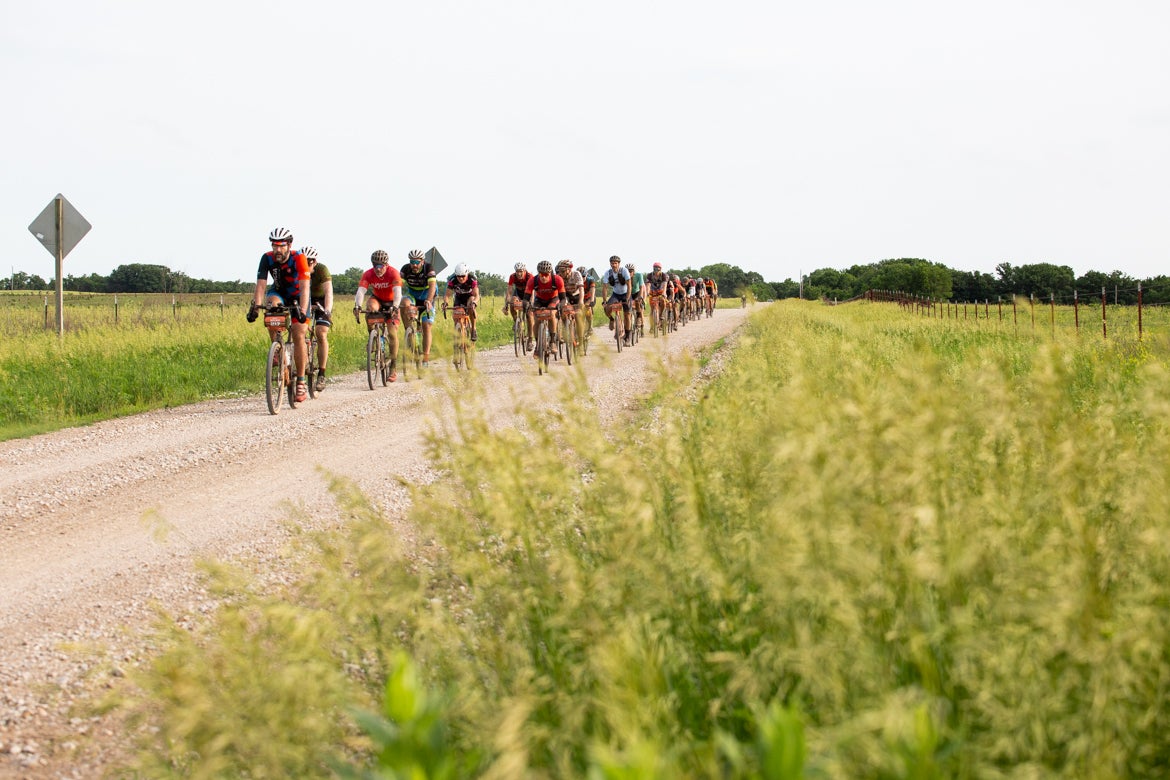Life Time Fitness acquires Dirty Kanza

Photo: Brad Kaminski | VeloNews.com
Gravel is growing, fast.
On Tuesday Life Time Fitness, a national chain of workout facilities, agreed to purchase the Dirty Kanza, one of the most prestigious gravel races in the world.
Financial terms of the deal were not available.
“We both are about creating life-enriching experiences and building community,” Dirty Kanza co-founder and executive director Jim Cummins told VeloNews. “We felt their dedication to both of those things was as strong as ours. We felt it was a really good match.”
The deal adds the Dirty Kanza to Life Time’s growing portfolio of endurance races. Life Time already owns Colorado’s Leadville Trail 100 series, as well as the Chequamegon Fat Tire Festival in Wisconsin.
“Our main goal as a company is to help people live happy, healthy lives, and we can do that outside the walls of our clubs with great events like Leadville, those are core to our heart and soul as a business, and Dirty Kanza will fit right in with that as well,” said Kimo Seymour, senior vice president of Life Time Fitness.
Cummins said that conversations with Life Time began in July 2017, shortly after the running of the Dirty Kanza. The conversation began in earnest that December and continued until last week.
The vetting process was thorough as Cummins and his fellow owners LeLan Dains and Tim and Kristi Mohn attended Life Time events to be sure they were comfortable with the sale. They attended the Leadville Trail 100 and Chequamegon, speaking to organizers and members of the local communities. Cummins said he felt a strong obligation to the community of Emporia, Kansas, where Dirty Kanza his held.
“That was the primary driver in this whole decision,” Cummins said. “We wanted to secure the future of this event for decades to come, and we felt an obligation to do that for Emporia and greater cycling community.”
Attending the Leadville Trail 100 in person was perhaps the turning point in their decision on the sale, Cummins said.
“That really sealed the deal in my mind, when I saw all the great philanthropic initiatives. Man if they could just do a fraction of that for Emporia, what a wonderful thing that’d be,” Cummins said.
Cummins referenced the Leadville Legacy Foundation, which supports local parks and trails, as well as the Leadville Trail 100 Legacy Foundation, which has awarded $340,000 in scholarships to local high school seniors since 2009.
Cummins founded the race in 2006. There was no registration fee, just 34 riders and some pizzas afterward. By 2018, the event had grown to the point where riders had to enter a lottery system to register due to high demand. The event was capped at 2,750 participants.
Cummins said Life Time has no plans to overhaul the race’s current format.
Cummins said the race’s current operational staff will remain on board. Cummins, Dains, and the Mohns will keep their existing roles.
“We want them to continue doing the great things they’ve been doing in Kansas, just like Ken [Chlouber] and Merilee [Maupin] in Leadville,” Seymour added, naming the local organizers behind the Leadville Trail 100. “This is a natural fit for us.”
Cummins also said there are no plans to grow registration although in 2019 the field will be slightly larger at 3,000 people for all four distances options combined (200, 100, 50, and 25 miles). Where participants might see a change is in an expanded expo and more activities surrounding the marquee Dirty Kanza 200 race. Dirty Kanza might also expand its slate of training camps and take them on the road to other parts of the U.S.
Given how quickly gravel racing has grown from its grassroots — Dirty Kanza was founded in 2006 — some riders might feel trepidation about the sale. Cummins knows there might be some questions or hesitation to embrace the change. However, he was quick to emphasize that Dirty Kanza and Life Time are in it for the right reasons.
“This has never been about the money,” he said. “Every single one of us on staff we could make twice as much money in our original fields of profession. I took a 50-percent pay cut to come do this full-time. We do what we do because we feel called to make the cycling community better and to make Emporia a better place to live. This move was about securing that future for decades to come it was never about money.”